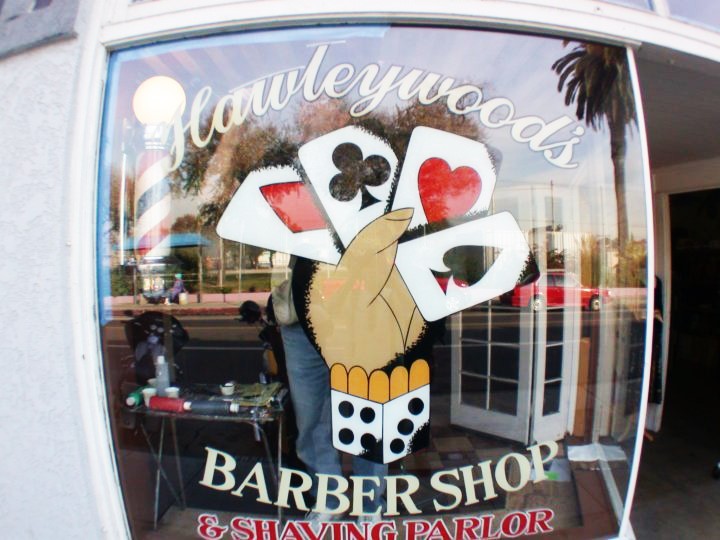
Screenshot of press conference hosted by Allred, featuring Trevis.
The transgender man who was denied a haircut at the Long Beach “old school” barbershop Hawleywood’s on Retro Row has reached a settlement with the business.
The management of the shop has reportedly agreed not to discriminate against patrons based on gender, in addition to paying an unspecified amount to the plaintiff, Rose Trevis, and his lawyers, compensating them for their work on the case. Trevis was represented by high-profile human rights attorney Gloria Allred and Byron Lau (the firm Allred, Maroko and Goldberg).
Allred is a civil rights attorney known for taking on cases involving women’s rights, including representing Bill Cosby’s accusers and voicing her support for SB 813, the Justice for Victims Act.
When the case was filed in March, Trevis alleged discrimination based on gender and gender identity.
Trevis claimed that employees of Hawleywood’s Barber Shop said they did not cut women’s hair and that females are not allowed in the shop while Trevis sought a haircut a few months ago.
The shop’s owners did not return requests for comment last March. However, their website described the barber shop as a “men’s sanctuary.” It goes on to state: “You all know how distracting a woman can be and who wants a straight-razor shave with a buxom blonde in the joint?”

Image courtesy of Hawleywood Barber Shop – Long Beach.
According to court documents, Trevis, described in the lawsuit as having a “masculine gender expression,” and partner Laura Lozano came upon Hawleywood’s as passersby when the plaintiff decided to get a haircut. After Trevis asked for service, a barber said that an appointment was required.
When Trevis attempted to set a date, the barber stared and said, “We don’t cut women’s hair,” the lawsuit states.
Trevis responded, asking “Who says I’m a woman?” The barber allegedly responded with the statement, “Like I said, we don’t cut women’s hair,” according to the lawsuit.
A second barber appeared, “examined plaintiff from head to toe” and asked if he could help Trevis and then stated that the shop did not serve women—that it was an “old-school barber shop” and a business with the right to refuse service to anyone, according to the suit.
When both Trevis and Lozano noted the shop’s policy was discriminatory, the second barber replied, “We don’t care,” and also said, “women are not even allowed in the shop,” the suit alleges.
The lawsuit states that Trevis felt “ashamed and humiliated” by the denial of service.

